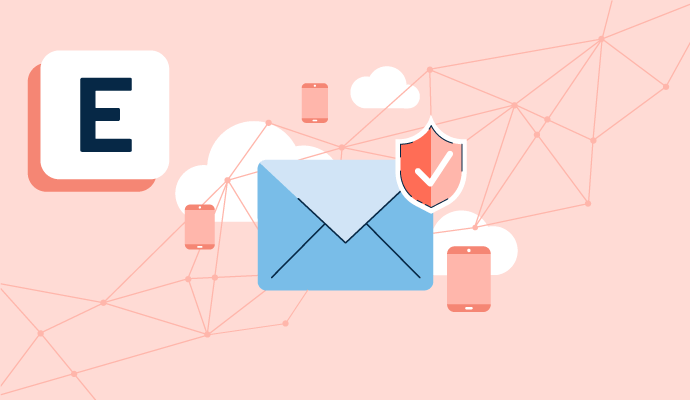What is email security?
Email security refers to the measures that keep electronic mail content, accounts, or services safe. As email increasingly replaces postal services for sending account statements, contracts, and other sensitive client information, the need to keep inboxes safe from unwanted eyes has become more important than ever.
Account holders and service providers alike can apply email security techniques for the most effective protection. For example, service providers can use access control mechanisms on the server, and account holders can frequently rotate through strong passwords.
Businesses can thwart would-be malware, spam, or phishing attackers by protecting email. Secure email gateway software can help an organization ensure that it’s protected and compliant.
Basic elements of email security
An email security system can have a variety of bells and whistles, but a few options are typically standard fare. Below are the key features of an email security system:
- Data encryption: Email encryption disguises or scrambles email messages read by anyone other than the designated recipient. Companies can protect information from hackers by using email encryption software to encrypt sensitive data.
- Spam filters: Email anti-spam software helps detect spam emails from marketers, filing them in a separate folder or blocking them altogether.
- Image control: One way hackers hide malware in emails is by including the software in images. Image blocking can stop this, while also preventing inappropriate material from entering or leaving the server.
- Virus protection: Email security systems can check inbound and outbound emails for viruses and malware designed to damage computer systems. When virus protection software finds messages like these, it halts the emails and eliminates the threats.
Benefits of email security
When implemented in a multi-layered approach, email security can provide many benefits to corporations as a whole and individual users. Email security can:
- Secure confidential information: Hackers devise multiple ways of entry into a company’s sensitive financial records, client information, bank accounts, and employee data. One path some hackers take is through email. By encrypting email and filtering out phishing messages, organizations can achieve more peace of mind that confidential information is secured.
- Protect company reputation: It’s not easy to build a recognized and well-respected brand. A large-scale data breach via email tarnishes a company’s hard-earned reputation. Email security helps ensure that customer data stays out of the hands of criminals.
- Prevent financial loss: Large corporations and small businesses alike can lose money via email scams. For example, some phishing emails use ransomware, which encrypts users' files or systems and renders them unusable until a ransom fee is paid. Other emails might send a realistic-looking invoice that requires users to input bank account information. By detecting scams early on, companies can avoid the financial burden.
- Ensure compliance: There are certain legal regulations organizations must follow to safeguard the personal information of employees and clients. For example, emails containing personally identifiable information (PII) should be encrypted or have a secure link. With a robust email security system, organizations have the added benefit of not worrying about compliance.
- Increase productivity: Spam messages, including advertisements and junk mail, are a major drain on workers’ efficiency. While they may seem to pose a small distraction, these messages can cause a domino effect, causing the employee to hop from one personal task to another. By filtering spam, workers can stay more focused and productive.
Email security best practices
Email is the cornerstone of communication for most individuals and businesses today. To maximize their chances of a secure email environment, companies should consider following these best practices:
- Use a secure email gateway: A secure email gateway helps prevent sending or receiving unwanted, harmful, or suspicious emails. This is one of the best ways to help filter out spam and malware, viruses.
- Automate email encryption: Email encryption adds extra protection to vulnerable information in transit. Software is available that detects sensitive data in outbound messages and automatically encrypts those messages.
- Implement multi-factor authentication: Multi-factor authentication is a system that requires users to give two or more different credentials to gain access to their accounts. This means more layers of protection stand between the hacker and the account itself, increasing its security.
- Train employees on security awareness: Human error is often the weakest security point. Even with the best systems in place, a malicious email might still get into a worker’s inbox. Training employees on recognizing, avoiding, and reporting phishing scams can save companies money and stress.
- Conduct frequent monitoring: As hackers and scammers find workarounds and new ways to breach security systems, current protections must be periodically re-evaluated and monitored. Consultation from email security experts keeps businesses on top of current practices and solutions.

Kelly Fiorini
Kelly Fiorini is a freelance writer for G2. After ten years as a teacher, Kelly now creates content for mostly B2B SaaS clients. In her free time, she’s usually reading, spilling coffee, walking her dogs, and trying to keep her plants alive. Kelly received her Bachelor of Arts in English from the University of Notre Dame and her Master of Arts in Teaching from the University of Louisville.
















